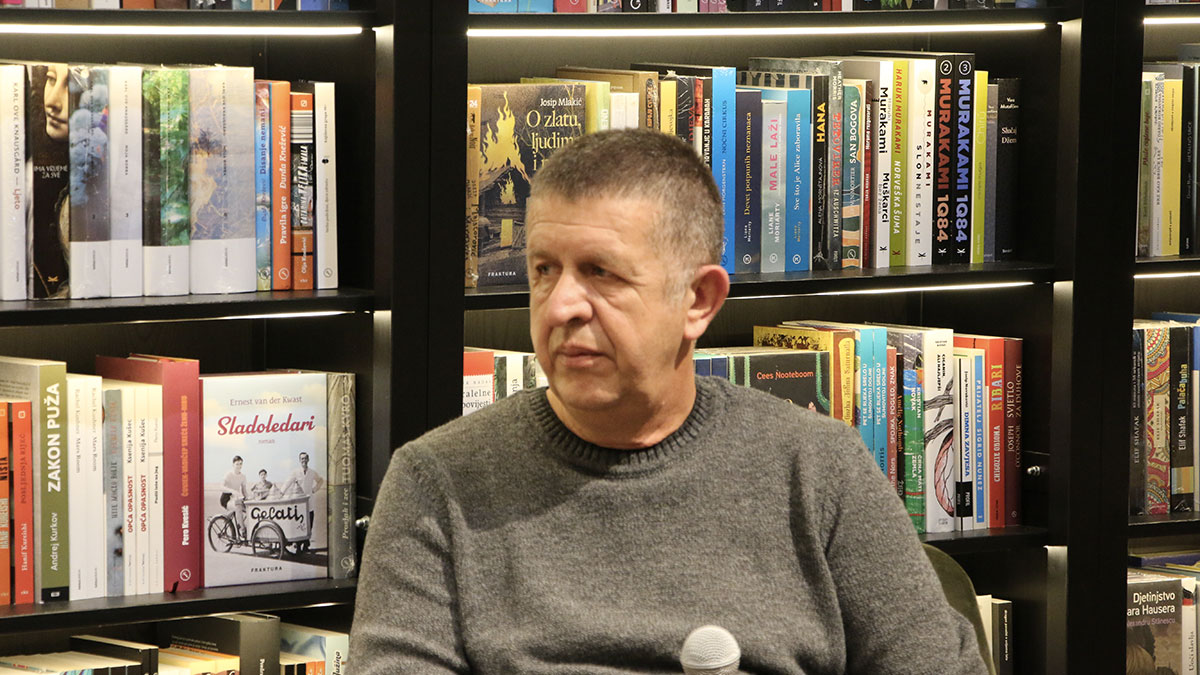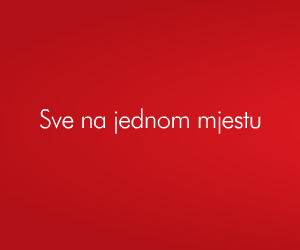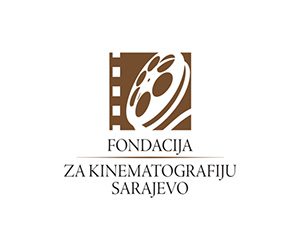
09/10/2023
Josip Mlakić: 'These parts have always produced creative and dedicated people'
A writer, columnist and scriptwriter Josip Mlakić is without a doubt one of the most productive authors in these parts. Although informally retired, he no longer works as mechanical engineer, which he did for the past twenty years, Josip is not resting. His atypical little big war novel - 'Burnout' - has just come out of print, and he already has several completed manuscripts ready for publishing. In the same time he has been working on several scripts. The motive for this interview are the films ‘Stigma’ and ‘Coffee Smuggling Routes’ he wrote the scripts for, and which are having premiere screenings at this year’s Mediterranean Film Festival.
This year we are watching two films based on your scripts in the Home Authors program at the Mediterranean Film Festival – the long-awaited 'Stigma', the story of the tobacco journey of a group of smugglers and the film ‘Coffee Smuggling Routes’, also a domestic phenomenon related to coffee smuggling.
The documentary film ‘Coffee Smuggling Routes’ talks about a phenomenon that marked the end of the 1970s and the beginning of the 1980s in the former state, when there was a shortage of coffee, which was a kind of an announcement of the crises that would follow. The film is focused on the mass coffee smuggling which occurred at the time, and which lasted until the mid-eighties. Through this phenomenon, the film actually talks about a time that was a kind of an introduction to the bloody nineties.
On the other hand, "Stigma" tells a completely different story, even though tobacco smuggling is in the foreground, another similar phenomenon from some other time. This film is primarily about ideological stigma that marked the period of socialism, especially the time right after the Second World War, when the plot of this film takes place.
To what extent were you involved in the whole process of making these films, in ‘Coffee Smuggling Routes’ we even see you in front of the camera?
The scriptwriter is the initial link in the process of creating a film, whose work is completed before the very beginning of the shooting. Therefore, in both these films I took part more as an observer, on the side. However, I was a bit more involved in the filming of ‘Coffee Smuggling Routes’, in which I am also one of the speakers. And maybe the decisive reason for all this was that the film was mostly shot in Gornji Vakuf - Uskoplje, where I live.
How many stories are hidden in our parts and is there anyone to tell them at all, either in the form of a film or a book?
Regarding this question in the literary field the situation is very good. First of all, I would like to mention Magdalena Blažević, who is already a renowned writer in Croatia. The plot of her books takes place in her hometown Žepče, and there is also Glorija Lujanović who published her debut book ‘Father’ this year. I would also like to mention Nebojša Lujanović, writer and literary theorist born in Novi Travnik, who lives in Split, and who often touches on Bosnia in his novels.
When it comes to film, we have to mention incredibly talented young director Zdravko Terkeš from Stolac, whose first short film already indicated his great potential. This year, Zdravko has received funding for his first feature film at the Cinematography Foundation's tenders, based on my script. Unfortunately, the Government of Federation of Bosnia and Herzegovina has illegally cancelled the tenders, and at this point it is uncertain how things will develop.
You have just mentioned the film project with Zdravko Terkeš, what’s it about?
This is a film that follows the last days of one Bosnian village, which is slowly dying. I once called the current emigration the last big topic for Bosnian Croats. The main character of the film, sixty-year-old Luka, turns on and off the lights in the abandoned houses in the village every night, creating an illusion of life in it, and along the way he searches for the body of his son who disappeared in the war.
Is there any of your films that you are most proud of, if we can put it that way?
These are the films I worked on with Kristijan Milić: ‘The Living and the Dead’ and ‘Dead Fish’. If I had to single out any film I have worked on, without a doubt, it would be Milić’s film ‘God’s Anger’, based on my script, whose completion is expected in a few months.
A director and film crew that you would like to collaborate with?
Now, you caught me off guard there. If I had to choose, my first choice would be David Simon, the creator of the brilliant HBO series ‘The Wire’, including the cast that took part in that project, mostly lesser-known actors.
You have been with the Mediterranean Film Festival for many years, from a jury member to an author who had a large number of films screened at the festival. What do you think is the significance of such a festival?
It is difficult to list all the things why this festival is important to me in such a small space. I will only mention the MFF's film school for young people, which has proven to be a valuable incubator of film talents, which, I believe, will come to light in due time, if it hasn't already.
What is your opinion on the situation in the domestic film industry today, both in the creative part and in the production part?
The fact that no new name has come from the Sarajevo Film Academy for more than fifteen years seems almost shocking. What is the reason for this? Are we all together, Bosniaks and Croats and Serbs, simply untalented? The answer is, of course, negative, because these parts have always produced creative and dedicated people. These young people simply cannot come to light, because they are brutally sidelined by the self-proclaimed film "geniuses" from Sarajevo, who have been smothering Bosnian cinematography for the past decade, reducing film funds to their own ATMs.
Your atypical little big war novel - 'Burnout' - has just come out of print.
It is atypical first of all in terms of form. The novel is composed of twenty-four individual stories chronologically arranged, and it follows the life of the five members of HVO from the war to the present day. Also, the novel questions reality in relation to its literary reshaping. In the novel I used some true events from the war, the context of which I completely changed out of respect for the people to whom they had happened, and who are mostly dead today.
Wartime and its aftermath is a topic that preoccupies you this time as well - how much can be drawn out from these topics?
I am primarily interested in the correlation of these two periods, that is, how much war and its aftermath are causally connected through the destinies of my characters, which are mostly tragic. I'm referring to PTSD primarily, which is a consequence of the war.
What are the differences when creating a novel and a screenplay? What gives you more freedom, or what restricts you less?
I have much more freedom when working on a screenplay. Novel is a structure in which you have to take numerous elements into account and which you do not encounter when working on a screenplay. Here I primarily speak about the language, the form of the novel, the "inner speech of the characters"... In addition, the screenplay is not an art form, but a template to which the director gives the "final touch".
You are retired, and considering that you are an extremely productive author, the assumption is that you are not resting - What are you currently working on?
Actually I am not retired, but I no longer work as mechanical engineer, the job I did for the past twenty years. Lately, I have been working a lot, mostly on novels. At this point, I have several completed manuscripts that are ready for publishing. And besides, I'm working on several screenplays in the same time.
From week to week, you also comment on social and political life - how much does this daily life of ours exhaust you?
I have been doing this job for a longer period of time, first in Croatia, for the weekly magazine Express, and then for Bljesak web portal, so a person creates some defence mechanisms inside. Otherwise, any normal person would have to be deeply frustrated with our everyday life.
Do you get tired of writing?
No. Regardless of one sentence from Hemingway's novel "The Green Hills of Africa", according to which "writing is an eerily serious matter".


